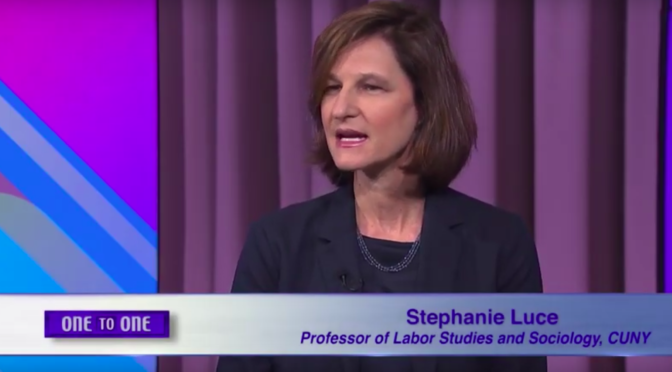stephanie luce
-

Stephanie Luce: The Coronavirus Crisis Exposes How Fragile Capitalism Already Was
With various states moving to “re-open” the economy and bring things “back to normal,” it benefits us to look at what we might return to — and how the conditions we’ve come to accept as “normal” played such a significant role in getting us to the current crisis. In Labor Notes last month, SLU professor…
-

Stephanie Luce: Essential Work
This article was original featured at Organizing Upgrade. By Stephanie Luce IS SEEKING OUT in Prospect Park Brooklyn. So in a few days it’s my birthday and I’m mega depressed enough as it is already spending isolation alone. Now I’ll have to spend my bday alone too. Can anyone help me get stuff to make…
-

Prof. Stephanie Luce in Labor Notes: “It Didn’t Have to Be Like This”
Here we are: the economy has been shut down, resulting in massive job loss to some and unsafe working conditions for others. This, writes SLU professor Stephanie Luce in Labor Notes, was the result of a horrible decision — lock ourselves down, or put tens of millions of people at risk. But, she writes, “It…
-

Prof. Stephanie Luce Featured on CUNY TV
In June, Professor Stephanie Luce, Chair of SLU’s Department of Labor Studies, spoke with veteran New York Newsday columnist Sheryl McCarthy on the CUNY TV series “One to One.” The conversation centered on the annual “State of the Unions” report published by Luce and Professor Ruth Milkman, as well as larger trends affecting labor unions.


